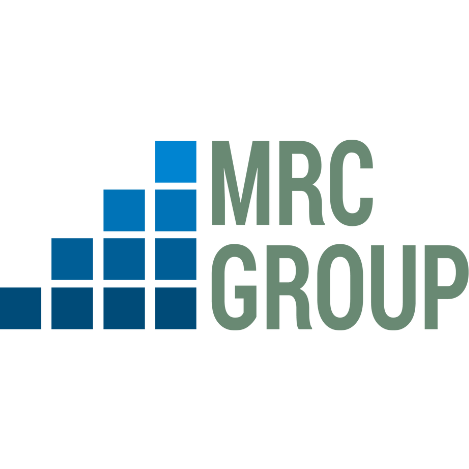

















The Rights and Responsibilities of Electricity Customers in Nigeria's Power Sector
Introduction:
The provision of electricity in Nigeria is a multifaceted process that involves various stakeholders, with electricity customers often overlooked. However, customers play a pivotal role in driving demand and shaping the direction of the Nigerian Electricity Supply Industry (NESI). Recognizing this, the Nigerian Electricity Regulatory Commission (NERC) has outlined rights and responsibilities for electricity customers within the value chain.
Electricity Customer Rights:
NERC has established a comprehensive list of rights for electricity customers in NESI, including:
1. Safe and Reliable Supply: The right to receive electricity in a safe and reliable manner.
2. Properly Installed Meters: Entitlement to properly installed and functional meters.
3. Information and Education: The right to be informed and educated about electricity services.
4. Transparent Billing: The right to transparent and accurate electricity billing.
5. Fair Billing for Unmetered Customers: Unmetered customers have the right to be billed according to NERC's estimated billing methodology.
6. Notification of Disconnection: Customers must receive written notice before any disconnection.
7. Refund for Overbilling: The right to a refund in case of overbilling.
8. Complaint Filing: The ability to file complaints and receive timely responses.
9. Bill Contestation: The right to contest inaccurate electricity bills.
10. Infrastructure Responsibility: Customers are not responsible for purchasing, replacing, or repairing electrical infrastructure.
Electricity Customer Responsibilities:
In line with their rights, customers also have responsibilities, including:
1. Timely Bill Payment: Paying electricity bills within the stipulated time frame.
2. Compliance with Connection Requirements: Providing necessary requirements for connection.
3. Protecting Electrical Installations: Preventing damage and tampering of electrical installations.
4. Cordial Conduct: Maintaining a respectful attitude towards electricity workers.
5. Bill Receipt: Ensuring the receipt of monthly electricity bills if not on prepaid meters.
6. Reporting Tampering: Notifying the respective Distribution Company (DisCo) of tampering or bypass of electrical installations.
7. Outstanding Bills Notification: Informing the DisCo of any outstanding bills before moving to new premises.
Impacts of Customer Rights and Responsibilities:
Adherence to these rights and responsibilities has significant impacts:
1. Customer Empowerment: Exercising rights empowers customers with fair pricing, complaint resolution, and access to billing information.
2. Transparency and Trust: Compliance fosters transparency and trust between customers and DisCos, vital for sector health.
3. Efficient Performance: Compliant customers ensure steady revenue streams and protect infrastructure, enhancing sector performance.
Non-compliance leads to:
1. Challenges: Non-compliance results in inefficient collections, liquidity issues, service disruptions, and increased expenses, harming sector performance.
Limitations to Customer Rights and Responsibilities:
Customer awareness is a major constraint. Most customers are unaware of their rights and obligations. To address this, practical strategies include:
1. Regular Customer Engagement: Host interactive sessions to educate customers about their rights and responsibilities.
2. Community Partnerships: Collaborate with local authorities and community groups for wider outreach.
3. Civil Society Engagement: Partner with consumer rights organizations.
4. Digital Outreach: Promote the regulator's website and use social media for customer engagement.
Conclusion:
NESI's optimal performance requires collaboration, with customers having a crucial role. Exercising rights and fulfilling responsibilities promotes transparency, accountability, trust, and financial stability. Improving customer awareness through informative campaigns is essential, and customers can also proactively seek information from the regulator's website to enhance their understanding of their rights and responsibilities.












Good day, I was just looking through to understand the rights of a customer under Ikeja Electricity.
I’m a Tenant using a prepaid meter.
For the past three (3) days we have had no power in our community and the ongoing exercise of linking and generating KYC and KCT for our prepaid meter is rather cumbersome.
Anyway, all residents were in dismay only for us to find out that an Ikeja electric official had removed the fuse for our transformer for reasons unknown to us and no information made available before hand.
The CDA members gathered together to find out why this occurred and we were informed that certain individuals connected to the transformer and residents within our community owed about a sum of 15 million and that they were ceasing the fuse as a result they have asked to make sure the amounts are paid before the fuse can be reconnected.
Please how is it the job of the resident to collect fees from customers who owe ?
And if customers are owing why not disconnect the customers who owe rather than customers who pay without default are to suffer for this.
Please I really want to understand why the prepaid meter user should now suffer in darkness for this
Good morning,
I’m a concerned Oshodi resident.
Kindly be informed that Ikeja Electric has not supplied us any reasonable light since November last year. I was at home throughout last week and I took the record of power supply, I found out we had less than 17 hours of power in one week.
The worst of all is that we are billed exorbitantly for the power we do not see.
They are about destroying our appliances with the manner in which they give us light (every second on and off) our light can come 3 times in one hour. There is almost 24 hours supply opposite my house which happens to be our former linear d we were removed in 2019 due to corruption within their system and it the reflection from there am made to pay for ,even as I write the light is reflecting into my room.
Ikeja electric wants to send people to steal as they deny us light for our businesses and still wants us to pay.
I have not made a dime from my business since the beginning of this year.
Please help us.
Good morning, in my area in Bwari area council of Abuja FCT, the case is different, if you have any issue with pole, connection, the AEDS staff will not do anything unless you purchase the pole and pay for the labour of maintenance, you will remain in darkness. Recent example in Kuduru Extension when an wooden electric pole broken, AEDC staff came and remove the cable trethening that unless the community purchase concrete poles they will not connect the power with wooden pole or remain in darkness, this make the community taxing landlord 50,000ngn per house to provide within 24hrs, some went borrow, some where disconnected for not able to raise the money within the speculated time. In the harsh economic downtune Nigerians are force to pay for what is not there responsibility.